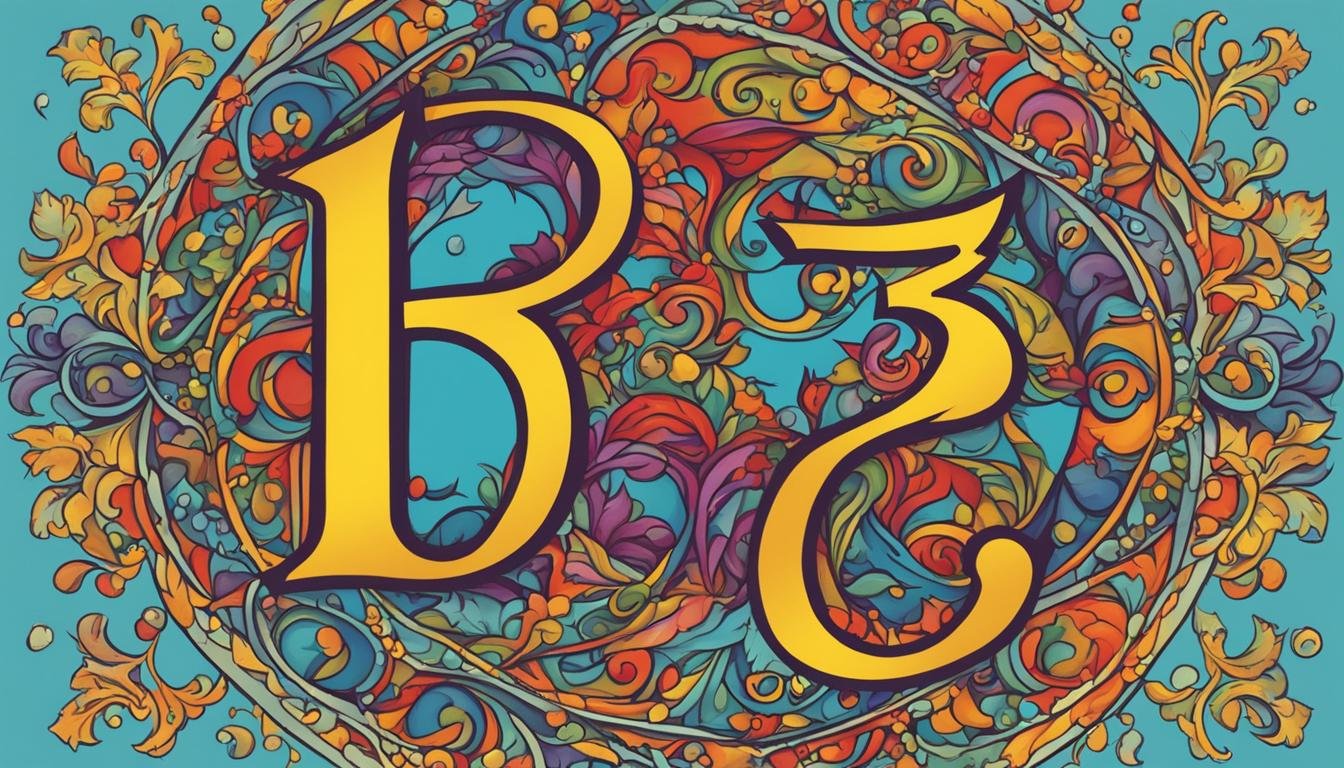The number 30 holds significant meaning in the Bible. In biblical times, this number represented dedication to a task or calling. Aaronic priests were dedicated to serving at the age of 30, as it was believed that by that age, individuals attained physical and mental maturity to handle major responsibilities. John the Baptist and Jesus both began their ministries at the age of 30. The number 30 is also associated with the sacrificial blood of Jesus, as he was betrayed for 30 silver coins. It is found in various biblical references and is believed to symbolize maturity, loyalty, and devotion.
Key Takeaways
- The biblical meaning of number 30 signifies dedication to a task or calling.
- Aaronic priests began their service at the age of 30 due to physical and mental maturity.
- Important biblical figures like John the Baptist and Jesus started their ministries at the age of 30.
- The betrayal of Jesus for 30 silver coins symbolizes the sacrificial blood.
- Number 30 is associated with maturity, loyalty, and devotion in biblical context.
Biblical Examples of Number 30

Several significant biblical characters and events are closely associated with the number 30. In the Old Testament, Joseph, the son of Jacob, began his reign as the ruler of Egypt at the age of 30. This marked a turning point in his life, as he was able to fulfill his purpose of saving his family and the Egyptian people from famine.
King David, known for his psalms and his role as the second king of Israel, also began his reign at the age of 30. This milestone marked the beginning of a prosperous and influential period in his life, where he established Jerusalem as the capital of Israel and further expanded the nation’s territories.
Ezekiel, a major prophet in the Old Testament, received his first recorded vision from God when he reached the age of 30. This divine encounter marked the start of his mission to deliver God’s messages to the exiled Israelites and serve as a spiritual guide during their challenging times.
Furthermore, the number 30 is associated with the concept of mourning in the Bible. When Moses and Aaron passed away, they were mourned for a period of 30 days, reflecting the deep respect and grief felt by the Israelites for their loss. This practice of observing a 30-day mourning period reaffirms the significance of the number 30 as a symbol of sorrow and remembrance.
Table: Biblical Characters and Events Associated with Number 30
| Biblical Character/Event | Significance |
|---|---|
| Joseph’s Reign in Egypt | Beginning of his purpose to save his family and the Egyptian people from famine. |
| King David’s Reign | Establishment of Jerusalem as the capital of Israel and expansion of the nation’s territories. |
| Ezekiel’s First Recorded Vision | Initiation of his mission to deliver God’s messages to the exiled Israelites. |
| Mourning for Moses and Aaron | Sorrow and remembrance of their significant contributions to the Israelites. |
This table highlights the biblical characters and events that demonstrate the significance of the number 30. It serves as a visual representation of the connections between the age of 30 and important life events, divine encounters, and periods of mourning in the Bible.
Symbolism of Sacrifice and Mourning

The number 30 holds deep symbolism in the Bible, particularly in relation to sacrifice and mourning. One of the most significant instances of this symbolism is found in the betrayal of Jesus by Judas, who traded him for 30 silver coins. This act of betrayal, which ultimately led to Jesus’ crucifixion, is seen as a sacrificial act that was necessary for the redemption of humanity’s sins.
Furthermore, the number 30 is closely associated with mourning in the Bible. It is mentioned in the context of mourning periods for prominent figures such as Moses and Aaron, who were mourned for 30 days upon their deaths. This period of mourning allowed for deep reflection and commemoration of their lives and contributions.
“In the Bible, the number 30 is a reminder of the sacrifices made and the grief experienced,” says biblical scholar Dr. Rachel Johnson. It represents the profound depth of love and dedication, as well as the sorrow and loss that come with it.
The connection between the number 30 and sacrifice is evident throughout the Bible, highlighting the profound significance of this number in biblical narratives. It serves as a reminder of the ultimate sacrifice made by Jesus for the salvation of humanity, as well as a symbol of grief and mourning for the loss of beloved leaders and figures.
Mourning Period in the Bible
In the biblical context, mourning is an essential part of the human experience. It is a time of deep sorrow and reflection, allowing individuals to grieve and honor those who have passed away. The number 30, with its association with mourning periods, emphasizes the importance of giving oneself time to mourn and pay tribute to loved ones.
- Moses and Aaron were both mourned for 30 days upon their deaths.
- Other prominent figures such as Jacob, Jacob’s son Joseph, and King Saul were also mourned for 30 days.
- These mourning periods served as a way for the community to come together, support one another, and remember the legacies of those who had passed away.
In conclusion, the symbolism of sacrifice and mourning is deeply intertwined with the number 30 in the Bible. It represents the sacrificial blood of Jesus and the grief experienced by mourners. The number 30 serves as a poignant reminder of the ultimate sacrifice made for humanity’s salvation and the importance of honoring and commemorating those we have lost.
Conclusion
The significance of the number 30 in the Bible cannot be overstated. It holds deep symbolism and represents various important aspects of faith and devotion. The biblical meaning of 30 is closely tied to maturity, loyalty, and dedication to a calling or task. The age of 30 marked a significant milestone for Aaronic priests, as they were deemed ready for the immense responsibilities of serving in the house of God.
Moreover, numerous biblical characters began their missions at the age of 30. John the Baptist and Jesus, the Son of God, both embarked on their ministries at this critical age, demonstrating the link between the number 30 and divine encounters. The number 30 is also associated with sacrifice and mourning in the Bible, symbolizing the ultimate sacrifice of Jesus and the mourning periods for prominent figures such as Moses and Aaron.
In summary, the number 30 in the Bible carries immense meaning. It represents maturity, loyalty, and the willingness to dedicate oneself to a purpose. It is a number of significance, marking important life events, divine encounters, and the ultimate sacrifice made by Jesus for the salvation of humanity. Understanding the biblical meaning of 30 offers a deeper appreciation for the scriptures and the profound wisdom they hold.
FAQ
What is the biblical significance of the number 30?
The number 30 holds significant meaning in the Bible. It represents maturity, loyalty, and dedication to a calling or task. Aaronic priests began their service at the age of 30, and many biblical figures started their important missions at this age. The number 30 is also linked to sacrifice and mourning, particularly through the betrayal of Jesus by Judas and the mourning periods for Moses and Aaron. Overall, the number 30 in the Bible signifies important life events, divine encounters, and the ultimate sacrifice of Jesus for humanity’s salvation.
Are there any biblical examples of the number 30?
Yes, there are several biblical examples of the number 30. Joseph and King David both began their reigns at the age of 30. Ezekiel received his first recorded vision from God at the age of 30. The patriarchs Salah, Peleg, and Serug all had their first sons at the age of 30. The number 30 is also associated with mourning, as both Moses and Aaron were mourned for 30 days. These examples demonstrate the significance of the number 30 in terms of important life events and divine encounters.
What is the connection between the number 30 and sacrifice in the Bible?
The number 30 is often associated with sacrifice in the Bible. Judas betrayed Jesus for 30 silver coins, symbolizing the sacrificial blood of Jesus. This act was a fulfillment of prophecy. Additionally, the number 30 is connected to mourning, as seen through the 30-day mourning periods for Moses, Aaron, and other prominent figures. This association highlights the significance of the number in terms of loss, redemption, and the ultimate sacrifice made by Jesus for humanity’s sins.
What is the biblical meaning of the number 30?
The number 30 holds great symbolism in the Bible. It represents maturity, loyalty, and dedication to a calling or task. Aaronic priests began their service at the age of 30, and many biblical figures started their important missions at this age. The number 30 is also linked to sacrifice and mourning, particularly through the betrayal of Jesus by Judas and the mourning periods for Moses and Aaron. Overall, the number 30 in the Bible signifies important life events, divine encounters, and the ultimate sacrifice of Jesus for humanity’s salvation.

I’m Benjamin, a passionate spiritual seeker and creator of Verses and Prayers. Alongside my girlfriend Emma and our pet lizard Mulle, I cherish family life, enjoy exploring new places, and am deeply involved in my church community. My love for reading and singing biblical verses inspires every aspect of my journey.

